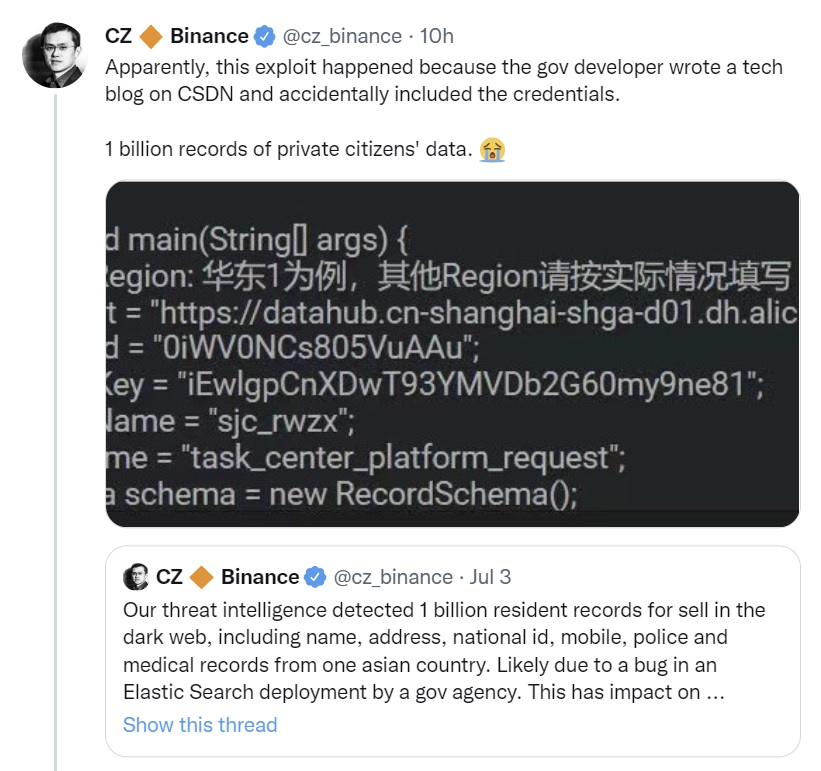
A hacker claims to have stolen the personal data of a billion Chinese citizens from the Shanghai National Police (SHGA) and is selling it for 10 bitcoins. “This database contains many TB of data and information on billions of Chinese citizens.”
23 Terabytes of Data on a Billion Chinese Citizens on Sale for 10 Bitcoins
An anonymous hacker has claimed to have stolen about 23 terabytes of data on a billion Chinese citizens from a Shanghai police database. Experts say that, if true, this would be one of the biggest data breaches in history.
The data is being offered for sale for 10 bitcoins. At the time of writing, this sum amounts to about $197,806.
On a hacker forum, an anonymous user using the handle “Chinadan” offered the data for sale on Thursday. The user claimed that the information was leaked from the Shanghai National Police (SHGA) database. “This database contains many TB of data and information on billions of Chinese citizens,” the post details.
The leaked data includes names, addresses, birthplaces, national ID numbers, mobile numbers, as well as crime and case details.
The user shared a sample of 750,000 records to allow interested buyers to verify that the data for sale is not fake.
On Monday, Binance CEO Zhao Changpeng (CZ) tweeted:
Our threat intelligence detected 1 billion resident records for sell in the dark web, including name, address, national id, mobile, police and medical records from one asian country.
“Likely due to a bug in an Elastic Search deployment by a gov agency … It is important for all platforms to enhance their security measures in this area,” he continued, adding that “Binance has already stepped up verifications for users potentially affected.”
The Binance chief further explained Monday: “Apparently, this exploit happened because the gov developer wrote a tech blog on CSDN [China’s Software Developer Network] and accidentally included the credentials. 1 billion records of private citizens’ data.”
What do you think about this data leak? Let us know in the comments section below.















